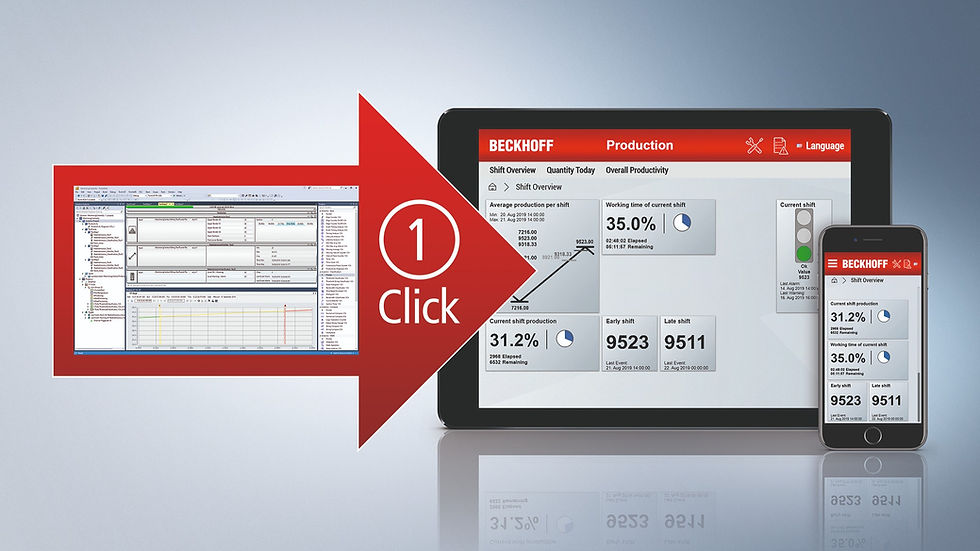There Is No One-size-fits-all IIoT Strategy — Part 1
- Mark Ruberg

- Dec 28, 2020
- 3 min read
Updated: Jul 19, 2023
With or without the cloud, scalable IIoT technologies solve common problems, such as inefficient compressed air systems, as evidenced in one packaging facility’s $250,000 annual savings

In packaging plants across the world, compressed air systems create significant energy waste. Pinhole leaks in air lines, sticky valves and other inefficiencies cost huge consumer packaged goods (CPG) manufactures and small contract packagers alike substantial amounts of money. These also hinder corporate green efforts for responsible energy usage. A key opportunity to solve compressed air issues and boost overall equipment effectiveness (OEE) is by thoughtfully implementing Industrial Internet of Things (IIoT) strategies with scalable PC-based automation technologies.
IIoT promises highly connected machines that improve efficiency and decrease production costs, which is intriguing for even the most traditional plant managers. However, most conversations about implementing IIoT strategies are little more than talk. Beneath the buzzwords and hype, the path forward remains murky — clouded by many questions and a lack of consensus. What is IIoT really capable of today? What does it actually mean from a practical standpoint? How it can be implemented painlessly and with a fast ROI? Where is the best place to start?
The truth is: There is no one-size-fits-all IIoT strategy. Companies need to evaluate the business case, scope and goals behind any IIoT implementation. The results of this evaluation will drive the system architecture decisions. However, that doesn’t mean it has to be a huge, expensive project that will take years to generate a minimal ROI. By understanding IIoT strategies, engineering and management teams can harness new solutions for all systems across the plant floor, including compressed air. Implemented correctly, the payback could take mere weeks instead of years.
What can IIoT really do?
The capabilities of IIoT technologies are vast. Some functions possible with a scalable technology platform include:
remote maintenance for machines located across the globe
remote, software-based changeovers for different packaging or product quantities
measurement of performance, uptime and downtime for machines and plants
throughput optimization via advanced analytics and machine learning algorithms
automated alerts via apps, email or text message to maintenance personnel, pinpointing specific machine and/or device malfunctions
enablement of virtual and augmented reality for more efficient remote support
track and trace of the supply chain, package barcodes, lot numbers and other important product data
implementation of Industrie 4.0 concepts, i.e. local mass production down to lot size 1
IIoT strategies can reduce downtime through faster troubleshooting, and prevent similar problems in the future by using analytics dashboards to schedule maintenance. One real-world example of this is a recent project by Macon, Georgia-based iZ Systems, which saved a nearby Pactiv packaging facility $250,000 annually through compressed air system upgrades. With a foundation of scalable IIoT technologies and PC-based automation from Beckhoff, iZ Systems is able to continue monitoring and maintaining the system, as well as providing key performance indicators (KPIs) to the packaging company to validate the ongoing cost savings.
Not only will the packaging operation run more efficiently with higher availability, but also it will keep pace with consumer demands for increased customization and seasonal products. In some cases, this requires hardware or software adjustments, but these do not need to be expensive. Many times, machines and devices in the field are already generating valuable data, and they just need a targeted IIoT strategy that puts the data into action.
Want to learn more about applying IIoT technologies to your packaging operation? Contact your local Beckhoff sales engineer today.

Mark Ruberg is the Packaging Industry Manager for Beckhoff Automation LLC.
A version of this article previously appeared in Packaging Strategies.

Comments